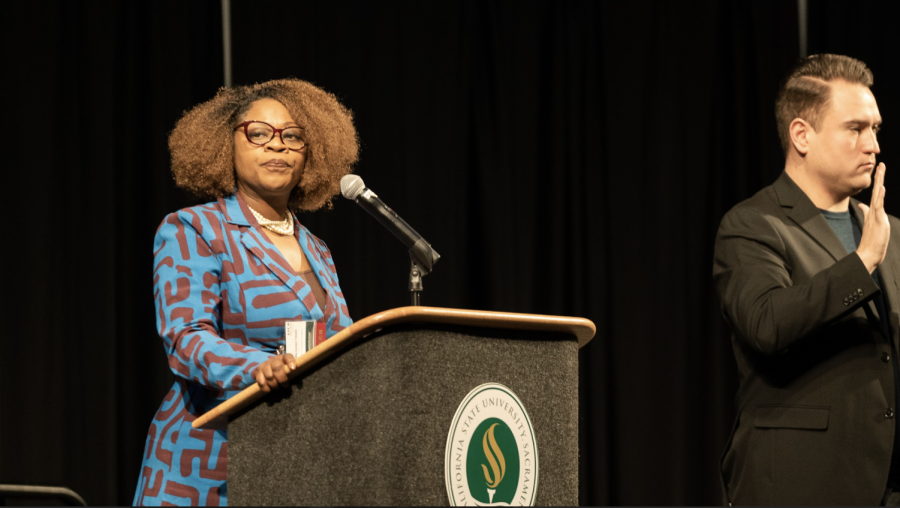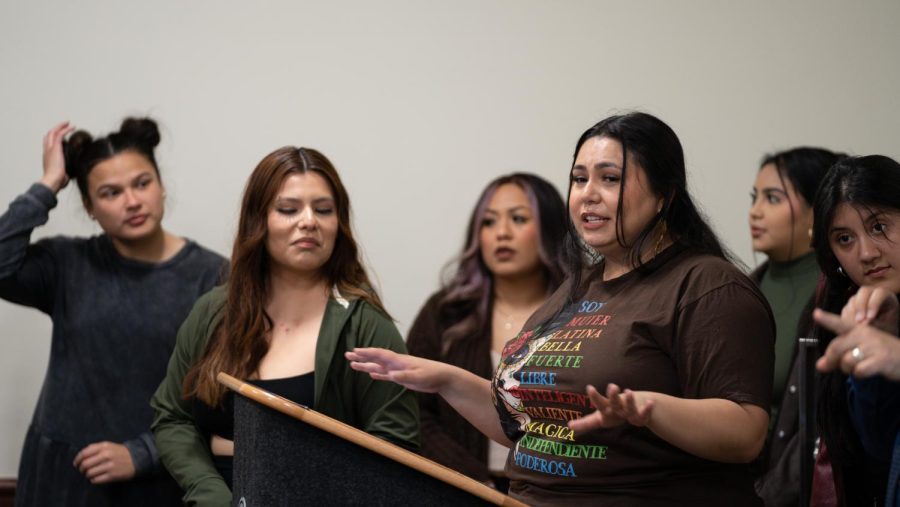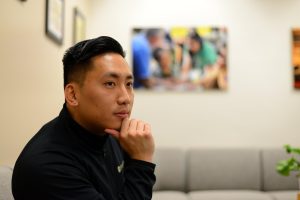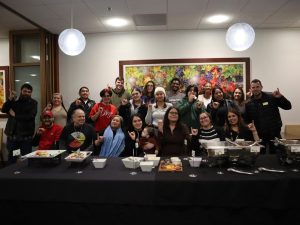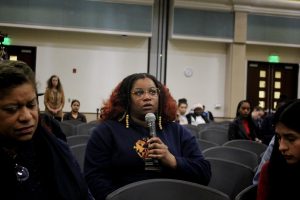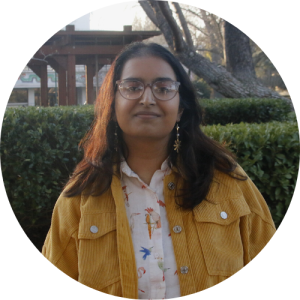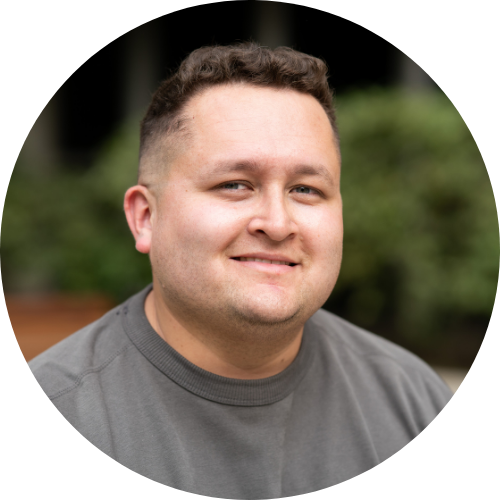Sac State discusses racism, explores inclusive learning at campus symposium
Students and faculty offer solutions to support marginalized communities
Dr. Mia Settles-Tidwell, vice president and chief diversity officer for the Division of Inclusive Excellence, gave opening remarks at the Anti-racism & Inclusive Campus Plan symposium in the University Union Tuesday, March 28, 2023. She urged attendees to engage in learning and discovery at the event in an effort to develop solutions to problems affecting marginalized groups on campus.
March 29, 2023
The Division of Inclusive Excellence held a symposium Tuesday where Sacramento State students and faculty participated in discussions and workshops to find better ways of serving marginalized students.
According to Dr. Mia Settles-Tidwell, vice president and chief diversity officer for the Division of Inclusive Excellence, the event provided students with a space for “learning, discovery and innovation” and covered the interconnectivity of racism and issues like sexual violence and ableism.
“We believe and acknowledge that we do have some challenges, but we also believe and acknowledge that we can do something about those challenges,” Settles-Tidwell said during opening remarks.
The symposium broke out into various workshops and presentations addressing topics like Sexual Violence Prevention, the Hispanic student experience and Sac States history with eugenics.
“Those themes having connections to anti-racism has been really cool and really neat to learn about,” mathematics major Brianna Davis said. “The stuff I’m learning about one thing applies to a lot of other things as well, and they are way more connected than I realized.”
During the Sexual Violence Prevention workshop, Senior investigator Britnie Hopkins, and Project Manager Marietess Masulit from the Office for Equal Opportunity briefed students on the history of sexual violence and racism in the United States before arming them with tools to be effective allies against sexual violence resistance.
“The work that we continue to do for prevention is tied to antiracism because the roots of sexual violence are tied to all of these injustices,” Hopkins said.
Masulit discussed the four tools in becoming an ally, which included “knowledge, self-awareness, skills and action.”
These tools are designed to identify the causes and effects of sexual violence and ultimately put into action preventative efforts such as education on bodily autonomy, consent and healthy relationships, according to Masulit.
OEO will host more sessions next week including Sexting gone wrong, and a conversation focused on male-identified individuals during the first Sexual Assault Awareness Month Day of Action on April 4.
Dr. Amber Gonzalez helped organize one of two student-run workshops at the symposium and presented on how to find community at a Hispanic Serving Institution. Student presenters from research groups Mariposas con Voces and Songs of the Hummingbirds discussed their experiences as Hispanic students at Sacramento State and how the university could improve Latinx representation on campus.
They did this by discussing themes capturing the Hispanic student experience, including being more than just students, imposter syndrome and the negative effects of hustle culture.
“Sometimes when I come onto campus I do feel like I don’t belong,” transfer student and theater major Alina Blanco said. “I just felt really seen in knowing that I’m not the only student who feels the ‘imposter syndrome’.”
The MCV and SOTH research groups called on their audience, almost entirely composed of students, to question the lack of Hispanic representation in university curriculum.
“There’s often structural or social issues that need to be battled,” presenter and Exercise Science major Jacqueline Villalobos, said. “But if we don’t bring it up to the university, no one is going to really know these issues.”
History department professors Chloe Burke, Rebecca Kluchin, Mona Siegel and Troy Crowder also led a workshop on Sac State’s connection to eugenics.
According to Burke, one of Sac State’s earliest benefactors — Charles Goethe — formed and funded multiple eugenic organizations during his life, promoted sterilization of those considered unfit and was a supporter of Nazi Germany during the 1930s.
Upon Goethe’s death, Sac State received the largest share of his $24 million estate, Burke said. She added, the university initially recognized his memory by giving him an honorary degree in science and named the Arboretum after Goethe.
While Goethe’s name has largely been erased, the speakers said there could be more done to acknowledge this history.
“We can’t take those histories back,” Kluchin said. “We can’t go back and change that but we can do some reckoning. We can listen, we can hear and we can try to move forward.”
Siegel touched on ways this history could be acknowledged, including creating a commemorative art piece on campus similar to Stolpersteine, which were stepping stones with the names of victims of those targeted by Nazi Germany.
The speakers then opened a discussion to attendees who considered what Sac State should do to acknowledge this history.
April Prater, a third-year graphic design major, said victims of eugenic practices and their families should be the ones to decide what commemoration looks like. She added there should be a place on campus where students could speak with victims about this history.
The event concluded with attendees breaking out into groups to work together on diversity activities. Groups discussed how to create an inclusive landscape on campus.
Katherine Morales, a fourth-year communication major, said she enjoyed the event because it was interactive and allowed people of different backgrounds to speak.
“It was cool to see a good group of diverse people kind of just get together and make up ideas of how Sac State could be better,” Morales said.
Tidwell said there were more educational events to come, especially through the Green and Gold Speakers series. She added the department is actively working to diversify Sac State’s faculty and staff.
Tidwell said it was exciting to see students offer their input on how to improve inclusivity.
“They were coming out with really amazing ideas to solve common DEI dilemmas, and how to get them in front of the right audience,” Tidwell said. “This is their future. And so if they already have the solution, our job would be to operationalize it.”






























































































































